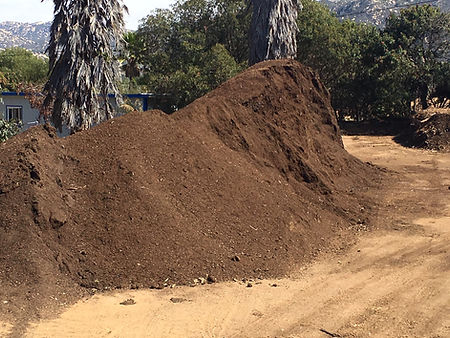
Mushroom Log Compost
Composting is the transformation of organic material through decomposition into a soil-like material called compost. Insects, earthworms and microorganisms help in transforming the material into compost. Composting is a natural form of recycling, which continually occurs in nature.
Compost is used as the fundamental soil enhancer, essential for maintaining fertile and productive agricultural land. Organic wastes should be composted before being added to the soil. Compost added to gardens improves soil structure, texture, aeration, and water retention. When mixed with compost, clay soils are lightened, and sandy soils retain water better. Mixing compost with soil also contributes to erosion control, soil fertility, proper pH balance, and healthy root development in plants.
The standard means of disposal for most organic wastes include landfilling and incineration. These practices are not as environmentally or economically sound as composting. Organic wastes, which are landfilled, break down very slowly due to the lack of oxygen. As it decomposes, it produces methane gas and an acidic leachate, which are both environmental problems.
Landfilling organic wastes also takes up landfill space needed for other wastes. Incinerating moist organic waste is inefficient and results in poor combustion, which disrupts the energy generation of the facility and increases the pollutants that need to be removed by the pollution-control devices. Composting these wastes is a more effective and usually less expensive means of managing organic wastes. It can be done successfully on either a large or small scale, but the technique and equipment used often differ.

Shiitake Mushroom Compost
After decomposed by shiitake mushroom, the mushroom logs are further composted in windrows which are from 5 to 8 feet high and as long as necessary.
Turning for aeration is done about once a month using a front-end loader or other type of equipment made specifically for that purpose. The temperature and moisture are checked twice a week.
The finished compost is given away if you haul it by yourself, or, if not, used by our own nursery. Wasted mushroom log composting eliminates the environmental and economic costs of landfilling or incineration. Purchase our super rich compost for screened mushroom log compost for $15.00 per yard and mushroom compost mix for $30.00 per yard.